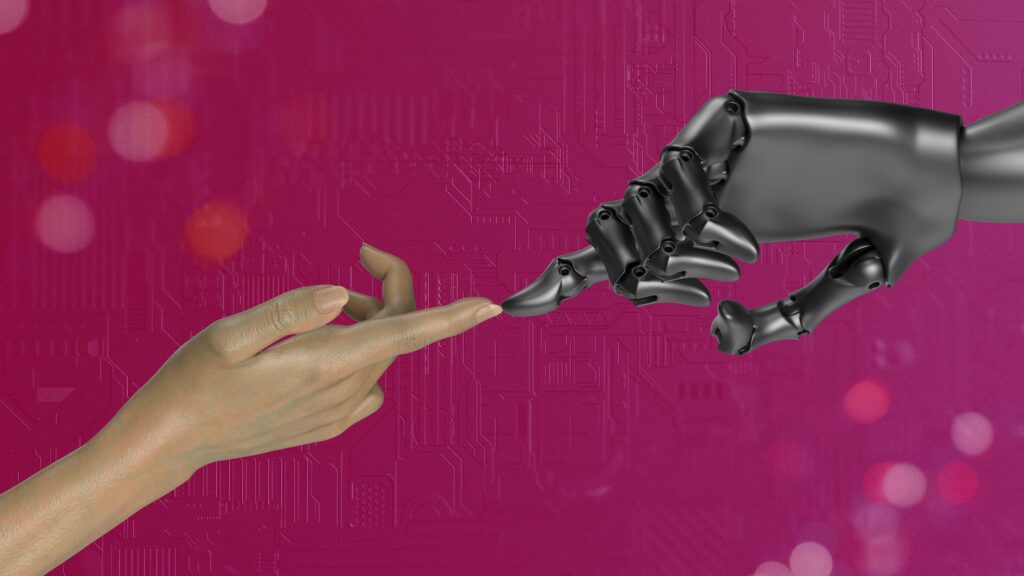AI Content Loses Copyright Protection: What Marketers Need to Know

The U.S. Court of Appeals for the D.C. Circuit made waves across creative industries by declaring that purely AI-generated content—without significant human input—cannot receive copyright protection under current U.S. law. The March 18, 2025 ruling stems from the case Thaler v. Perlmutter, where inventor Stephen Thaler sought copyright for artwork created entirely by his AI system, “Creativity Machine”.
This landmark decision has big implications, especially if you’re a marketer, creator, or publisher already harnessing the power of AI. And while we’re in no way providing legal advice here or definitively advising any particular course of action, we’d like to explain our understanding of what this means for the marketing and content professionals who use Conforma.
What’s the Big Deal?
At first glance, the ruling might seem straightforward. Courts have long held that copyright exists to reward human creativity. Yet, as AI tools become integral to content creation workflows—generating everything from blog outlines to multimedia assets—this decision suddenly hits very close to home.
Think about it: If your brand is investing in AI-generated videos, infographics, or even copywriting, where exactly do you stand legally? Are you investing in content you can’t truly protect?
Human Touch: How Much is Enough?
Here’s where things get a bit ambiguous. The court emphasized the lack of “human authorship” as a delimiting factor, with emphasis, but never clearly defined how much human intervention qualifies. Are detailed prompts and minor editing enough, or must a human substantially shape the final product? And if so, to what degree?
For marketers using platforms like Conforma, where AI rapidly transforms text into engaging multimedia formats, there’s clearly human direction involved—you’re providing the content, guiding choices, reviewing outputs. But the million-dollar question remains: is this sufficient human involvement for copyright protection?
Why This Matters for Marketers
As marketing increasingly relies on multimedia to capture attention, this ruling is particularly relevant. Research shows multimedia content significantly boosts engagement—88% longer dwell times, greater conversion rates, and improved SEO rankings. Losing copyright protection on such powerful content can affect your ability to control how your creations are shared, reproduced, or monetized.
Fortunately, there isn’t need for panic at this point.
Navigating this New Decision
Even without complete clarity, you can position your marketing strategy to stay legally safe:
- Prioritize Human Input — Keep humans meaningfully involved. Provide specific instructions, iterative reviews, and edits. Running with as-is output from any generative content solution isn’t ideal, but now there are legal reasons to ensure the final product is shaped by humans.
- Document Everything — Clearly record your creative process and human decisions—these can become crucial evidence of “authorship.” From blog posts to full book transcripts, this doesn’t mean you can’t use AI to create copyrighted works, it means that a human need to be involved in and actively shaping the final product.
- Stay Informed — Keep an eye on ongoing legal cases, legislative changes, and industry standards around AI-generated content. This is a space where novelty is creating uncertainty – at least for now. The imprecise phrasing of this case means future challenges are inevitable and related precedent is being set almost every month.
What Happens Next?
Pretty much every legal expert consulted predicts challenges to this ruling. Clarifications around what constitutes enough “human involvement” will likely emerge through future cases or even legislative amendments. Until then, marketers should focus on strategies that integrate AI’s power with clear, documented human oversight. You should be using AI as part of your workflow, but meaningful, impactful content heavily involves human lead concepts and words. Put the effort into the core of your content, let AI add scale to the extension and promotion of that content.
Final Thoughts
This decision doesn’t signal the end of AI in original content generation — far from it. Instead, it underscores the continued importance of human creativity and judgment, even in an AI-enhanced world. Platforms like Conforma, which empower marketers to convert text to audio, video, and infographic formats rapidly, will remain vital tools, provided there’s enough human direction involved. Conforma may give content it’s form, but humanity gives content it’s soul. That will never change.
